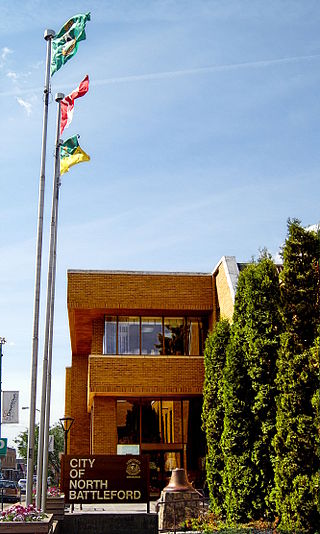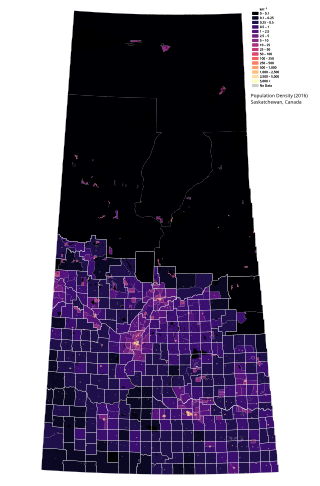Assyrian population in Canada by province and territory
| Provinces and territories | (2011) [9] |
|---|---|
| 9,420 | |
| 444 | |
| 380 | |
| 260 | |
| 175 | |
| Provinces and territories | (2016) [10] |
|---|---|
| 12,075 | |
| 545 | |
| 560 | |
| 40 | |
| 215 | |
Assyrians | |
|---|---|
| Total population | |
| 20,000 (by ancestry, 2021 census ) [1] | |
| Regions with significant populations | |
| major: Toronto, Hamilton, Ottawa minor: Vancouver, Windsor, London | |
| Languages | |
| English · French · Assyrian Neo-Aramaic | |
| Religion | |
| Mainly Christianity (majority: Syriac Christianity; minority: Protestantism) |
Assyrian Canadians (French : Canadiens Assyriens) are Canadians of Assyrian descent or Assyrians who have Canadian citizenship. According to the 2011 census, there were 10,810 Canadians who claimed Assyrian ancestry, [2] an increase compared to the 8,650 in the 2006 Census. [3]
They are the indigenous pre-Arab and pre-Turkic people of northern Iraq, southeast Turkey, northeastern Syria, and northwest Iran, who speak dialects of Eastern Aramaic and are mainly Christian, although some are irreligious. Although most come from the aforementioned countries, many Assyrians have immigrated to Canada from Jordan, Georgia and Armenia as well.
The vast majority of Assyrian Canadians live in Ontario; 17,100 of the 20,000. 1,000 live in Windsor. [4] Greater Toronto Area contains the bulk of Ontario's Assyrians, especially in the communities of Brampton and Mississauga.
There, however, are very few outside of Ontario within Canada. For instance, Quebec only has 900 Assyrians, only 0.01% of its population.
Battleford's News-Optimist on June 22, 1979, noted that, "The Canadian West has no greater settlement story than that of the Assyrians who landed on Canadian soil on January 1, 1903." [5] [6]
Reverend Dr. Isaac Adams organized two groups of Assyrian immigrants from Urmia, one in 1903 and 1906. Unlike many other immigrant groups at the time, the settlers were composed of families and not just men. They were the first Presbyterians in the region. [6]
The Presbyterian Record , on January 1, 2008, the anniversary of the arrival of the Assyrian settlers, entitled their commemorative article: "Presby-Assyrians: they escaped persecution to form a unique community in Saskatchewan", connoting their religious and ethnic heritage. [7]
Most Assyrians arrived in Canada due to both ethnic persecution and religious persecution, mainly from their ancient ancestral Assyrian homeland in northern Iraq, southeast Turkey, northeast Syria and northwest Iran. The migration to Canada may be broken up into a number of distinct periods: early settlement and the subsequent waves of migration sparked by the Assyrian genocide in present-day Turkey and Iran, the Iranian Revolution of 1979 and, more recently, the Iraq War and Syrian Civil War. The last 2006 Census Canada counted 8,650 [3]
The first period of known mass-migration came just after the Assyrian genocide in the dying days of the Turkish Ottoman Empire. The second and perhaps largest wave of migration into came during the Iran–Iraq War. Under the shadow of war, Saddam Hussein's al-Anfal Campaign constituted a major force for migration for Iraq's Assyrian population.
In 2014 after the ISIS attacks on the Nineveh plains, a rally on behalf of Assyrian genocide recognition was organized in Windsor, Ontario, at the City Hall. Over 100 attendants, mostly Assyrian Christians, came out to rally the Canadian government to create an Assyrian State, through the UN. The rally received the support of Brian Masse of the NDP who spoke briefly, as well as a priest from the local Greek Orthodox Church. [8]
| Provinces and territories | (2011) [9] |
|---|---|
| 9,420 | |
| 444 | |
| 380 | |
| 260 | |
| 175 | |
| Provinces and territories | (2016) [10] |
|---|---|
| 12,075 | |
| 545 | |
| 560 | |
| 40 | |
| 215 | |

Assyrians are an indigenous ethnic group native to Mesopotamia, a geographical region in West Asia. Modern Assyrians descend directly from Ancient Mesopotamians such as ancient Assyrians and Babylonians. Modern Assyrians may culturally self-identify as Syriacs, Chaldeans, or Arameans for religious, geographic, and tribal identification.

North Battleford is a city in west-central Saskatchewan, Canada. It is the seventh largest city in the province and is directly across the North Saskatchewan River from the Town of Battleford. Together, the two communities are known as "The Battlefords". North Battleford borders the Rural Municipality of North Battleford No. 437, as well as the North Battleford Crown Colony.

Christianity in Iran dates back to the early years of the religion during the time of Jesus, predating Islam. Through this time the Christian faith has always been followed by a minority of the population of Iran under its different state religions: Zoroastrianism in historical Persia, followed by Sunni Islam in the Middle Ages after the Arab conquest, then Shia Islam since the Safavid conversion of the 15th century. However, Christians comprised a larger share of the population in the past than they do today. Iranian Christians have played a significant part in the historical Christian mission: currently, there are at least 600 churches and 300,000–370,000; some sources claim significantly higher numbers.

The phenomenon of large-scale migration of Christians is the main reason why Christians' share of the population has been declining in many countries. Many Muslim countries have witnessed disproportionately high emigration rates among their Christian minorities for several generations. Today, most Middle Eastern people in the United States are Christians, and the majority of Arabs living outside the Arab World are Arab Christians.

The Assyrian diaspora refers to ethnic Assyrians living in communities outside their ancestral homeland. The Eastern Aramaic-speaking Assyrians claim descent from the ancient Assyrians and are one of the few ancient Semitic ethnicities in the Near East who resisted Arabization, Turkification, Persianization and Islamization during and after the Muslim conquest of Iraq, Iran, Syria and Turkey.

The Kurdish population is estimated to be between 30 and 45 million. Most Kurdish people live in Kurdistan, which today is split between Iranian Kurdistan, Iraqi Kurdistan, Turkish Kurdistan, and Syrian Kurdistan.

Ontario, one of the 13 provinces and territories of Canada, is located in east-central Canada. It is Canada's most populous province by a large margin, accounting for nearly 40 percent of all Canadians, and is the second-largest province in total area. Ontario is fourth-largest in total area when the territories of the Northwest Territories and Nunavut are included. It is home to the nation's capital city, Ottawa, and the nation's most populous city, Toronto.
Assyrian Americans refers to individuals of ethnic Assyrian ancestry born in or residing within the United States. Assyrians are an indigenous Middle Eastern ethnic group native to Mesopotamia in West Asia who descend from their ancient counterparts, directly originating from the ancient indigenous Mesopotamians of Akkad and Sumer who first developed the independent civilisation in northern Mesopotamia that would become Assyria in 2600 BC. Modern Assyrians often culturally self-identify as Syriacs, Chaldeans, or Arameans for religious and tribal identification. The first significant wave of Assyrian immigration to the United States was due to the Sayfo genocide in the Assyrian homeland in 1914–1924.

Saskatchewan is the middle province of Canada's three Prairie provinces. It has an area of 651,900 km2 (251,700 mi2) and a population of 1,132,505 (Saskatchewanians) as of 2021. Saskatchewan's population is made of 50.3% women and 49.7% men. Most of its population lives in the Southern half of the province.

Asian Canadians are Canadians who were either born in or can trace their ancestry to the continent of Asia. Canadians with Asian ancestry comprise both the largest and fastest growing group in Canada, after European Canadians, forming approximately 20.2 percent of the Canadian population as of 2021. Most Asian Canadians are concentrated in the urban areas of Southern Ontario, Southwestern British Columbia, Central Alberta, and other large Canadian cities.

Kurds in the United States refers to people born in or residing in the United States of Kurdish origin or those considered to be ethnic Kurds.

British Assyrians are British people of Assyrian descent or Assyrians who have British citizenship.
Iraqi Canadians are Canadians of full or partial Iraqi descent, as well as people from the state of Iraq who are ethno-linguistic and religious minorities. According to the 2011 Census there were 49,680 Canadians of Iraqi ancestry, an increase compared to the 2006 Census.

Christianity, which originated in the Middle East during the 1st century AD, is a significant minority religion within the region, characterized by the diversity of its beliefs and traditions, compared to Christianity in other parts of the Old World. Christians now make up approximately 5% of the Middle Eastern population, down from 13% in the early 20th century. Cyprus is the only Christian majority country in the Middle East, with Christians forming between 76% and 78% of the country's total population, most of them adhering to Eastern Orthodox Christianity. Lebanon has the second highest proportion of Christians in the Middle East, around 40%, predominantly Maronites. Egypt has the next largest proportion of Christians, at around 10% of its total population. Copts, numbering around 10 million, constitute the single largest Christian community in the Middle East.
Cambodian Canadians are Canadians of Cambodian ethnic origin or descent. There are a total of 38,490 Canadian Cambodians, most of whom reside in Toronto and Montreal.
The problem of Kurdish refugees and displaced people arose in the 20th century in the Middle East, and continues today. The Kurds, are an ethnic group in Western Asia, mostly inhabiting a region known as Kurdistan, which includes adjacent parts of Iran, Iraq, Syria, and Turkey.
This is a list of Assyrian populations by country according to official and estimated numbers. Due to a lack of official data in many countries, estimates may vary.

Kurdish Canadians refers to people of Kurdish origin who are born in or living in Canada.

The Catholic Church in the Middle East is under the spiritual leadership of the Pope in Rome. The Catholic Church is said to have traditionally originated in the Middle East in the 1st century AD, and was one of the major religions of the region from the 4th-century Byzantine reforms until the centuries following the Arab Islamic conquests of the 7th century AD. Ever since, its proportion has decreased until today's diaspora tendency, mainly due to persecution by Islamic majority societies. In most Islamic countries, the Catholic Church is severely restricted or outlawed. Significant exceptions include Israel and Lebanon.

West Asian Canadians, officially known as West Central Asian and Middle Eastern Canadians are Canadians who were either born in or can trace their ancestry to West Asia and Central Asia. The term West Asian Canadian is a subgroup of Asian Canadians and Middle Eastern Canadians. According to Statistics Canada, West Asian Canadians are considered visible minorities and can be further divided by nationality, such as Lebanese Canadian or Iranian Canadian.